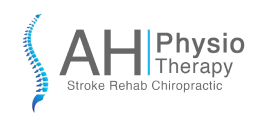The shocking link between Breathing and Back pain: Read on for an interesting take on respiratory muscles and lower back and core muscles.
Imagine this: You stretch, exercises, you maintain good posture, but your back pain is still there. What if I told you that something as simple as the way you breathe could be the missing link in the puzzle?
Sounds unbelievable, right? But your breathing pattern directly affects your spinal and core stability, even the pain levels. lets understand this overlooked cause of back pain and how to fix it.
Can your breathing really affect your back?
Yes! Most people don’t breathe efficiently. Instead of using their diaphragmatic muscles, they rely on their chest and neck muscles, creating tension and instability in the lower back. Lets break it down.
- Chest breathing vs. Diaphragmatic breathing The problem: Shallow chest breathing
- Many people take quick , shallow breaths into their chest instead of their belly.
- this activates neck, shoulder, and upper back muscles, increasing tension and stress on the spine.
- overtime , poor breathing weakens your core, making your back more vulnerable to pain.
The FIX: Diaphragmatic breathing (Belly breathing)
Your Diaphragm is a dome shaped muscles below your lungs. Its meant to handle most of your work when you breathe.
Proper Diaphragmatic breathing engages your core, stabilizes your spine and reduces back strain.
Fun fact: Babies breathe perfectly using diaphragm, but we grow and stress builds, we shift to shallow breathing.
Weak core= More back pain
The Problem: The core is more than just abs
Your core isn’t just about six pack abs. In reality, it is a complex group of muscles includes your diaphragm, internal oblique, external oblique muscles, transverse abdominis, multifidus and pelvic floor muscles, which work together to support the spine and maintain a proper posture. When these muscles are weak or imbalanced, the lower back compensates leading to strain, poor movement biomechanics and increased pain. Strengthening the entire core and not just the superficial abs helps improve spinal stability, reduces stress on the lower back and prevent chronic pain. Incorporating exercises that engage deep core, such as planks, dead bugs and bird dogs can significantly enhance core function and provide lasting relief from back pain.
If you are experiencing back pain, which doesn’t seem to go, consult our expert physiotherapists for customized exercise plans and live a pain free life.

